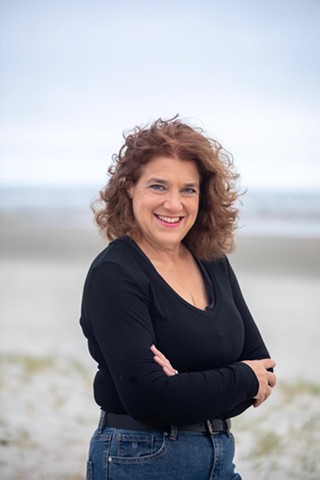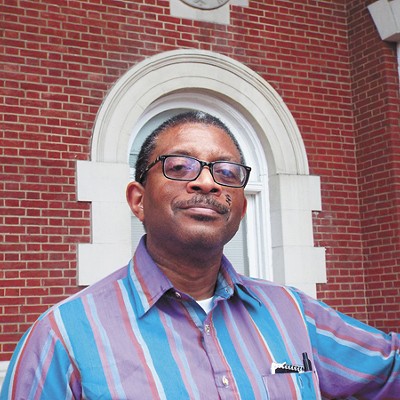AT THE July 11 School Board meeting, the SCCPSS Wellness Committee proposed revisions to IEDA, otherwise known as the Unstructured Break Time policy. The proposed policy was inadequate and failed to comply with the basic requirements of state law, Georgia Code Section 20-2-323, as it did not address "whether breaks can be withheld from students for disciplinary or academic reasons and, if breaks can be withheld, under what conditions."
In a SCCPSS online survey conducted from Aug. 10-14 this year, a majority of parents responded that schools should not be allowed to withhold unstructured breaks (including recess) for disciplinary purposes or for academic activities.
At the Oct. 11 School Board meeting, School Board President Jolene Byrne proposed a policy that addressed what the Wellness Committee had failed to accomplish. The proposed policy stated, “Students may not be excluded from participating in recess for unrelated disciplinary action. Physical activity, including walking laps instead of participating in recess, may not be used as a disciplinary measure. Recess may not be withheld for academic reasons without advanced parental notice and consent. Reasonable and appropriate accommodations for students with disabilities will be made to ensure they are able to participate in recess.”
Before the merits of the proposed policy could be discussed, Larry Lower (District 6) made a motion to send the issue back to the Wellness Committee and Connie Hall (District 3) seconded the motion.
The motion passed 7 - 2 with Jolene Byrne and Michael Johnson (District 7) in opposition as they did not want to delay further advancement of an issue that has already been neglected to be addressed.
Sandra Cason, who serves on the Wellness Committee, spoke at the Oct. 3 Board Meeting in strong support of the policy that Ms. Byrne proposed. After the meeting Cason was disappointed. “It is frustrating because I feel as though the policy was not passed because of tension between board members. It seemed Larry [Lower] didn’t even hear what we had to say and none of [the board members voting for Lower’s motion] seemed to take it into consideration. I will be at the next Health and Wellness Committee meeting and I will be pressing for a policy that they can pass. Everyone around me in the meeting felt it should have been passed. Why not treat it like other policies and call for an annual review?”
The policy, dubbed by many as the “Recess Policy,” has garnered many parent comments.
Martha Lynn Manterfiend, who has three children at Georgetown Elementary, said, “I know that recess is a beneficial part of every day for every child. They need the opportunity to exercise...or not. Whatever they want to do with their free time, their down time, they need that. Some children do not get the opportunity to play outside, to be free and fun when they’re not at school. My children do most days. Sometimes, we have sports obligations, places to be, things to do. If they are pent up at school without an outlet, their concentration, behavior, and academics will suffer. There is no good reason in evidence for a child to go without a substantial recess during the day.”
JoAnna Shearouse Hayes commented, “As a parent and substitute teacher, I see first-hand what recess can do for kids. They need time to be free and make their own decisions about where to play, who to play with, and even choose not to play. At several schools, students are allowed to choose to go to the library and read instead of recess. Some children choose to bring a book on the playground and sit in a quiet corner to read it. Recess is about taking a mental break. As an employee, aren’t you entitled to a 30-60 minute lunch break? Our kids frequently endure silent lunch. When do they get to develop those important social skills of learning to talk to their peers? Don’t we want kids who can function in a diverse world? Recess is learning.”
Marilyn Ott Black, who has a grandson in pre-K at Heard, attended the October board meeting. “As a retired elementary teacher, I can attest to the many benefits of a mandated daily recess as well as other forms of unstructured breaks throughout the day. The policy as now written clearly provides for both of these. I am frustrated that a vote on this was not taken. Unnecessary delay was the desire of the majority of the board.”
Tracy Marie Saunders, who is a teacher and has children at Heard, Port Wentworth, and Rice Creek, acknowledged, “Children need recess. Period. They aren’t built to sit still all day, and studies show that they learn best with activity and free play built into their days.”
Tye Whitely, who was a candidate for School Board President in May and is a mom of three children who attend Garrison, stated, “I think that the new policy is a great improvement on the previous. This has minimum requirements and specifically says that recess can not be withheld because of behavior issues. I do wish they had requirements instead of suggestions for older children. I have two middle school students and I know that they benefit from recess as much as our younger child. Recess has so many positive benefits that I can personally attest to. From stimulating our brains and bodies to providing us with the opportunity to practice soft skills that we need later in life. It’s just an invaluable opportunity to help kids properly develop.”
Chelsey Beck, parent and public education advocate, “As a parent of two children at SCCPSS, I can assure you that kids lose recess for bad behavior. It happens at Ellis. It happens at Marshpoint. Those are the two schools I can unequivocally confirm as not being ‘outliers.’ Recess, or unstructured play, is well known in child development to have many positive affects, including an increase in academic performance. Using it as a tool to punish children borderlines on abusive. Researchers studying the effects of recess on academics would have ethical concerns about removing it from children’s lives because of the harm that might inflict.”
Beck continued, “It should be mandated. It should not be up to anyone’s discretion. Every child deserves the opportunity to take a break from the seven hour school day to move around and socialize as they see fit.”
As the parent of a boy, I always knew the importance of recess, but thought that it was primarily an issue for boys because they are not designed to sit in a desk all day and need unstructured breaks to get their wiggles out and run off some energy to be able to learn.
As the recent guardian of a 2nd grade girl, I am finding how essential recess is for all students. On the days that she has recess, when I pick her up from carpool line she regales me with every detail of her time outside, reminiscing about every game they played and each caterpillar they examined.
Her greatest concern after Hurricane Michael came through was if the downed limbs and Spanish moss would cause the school to lose recess. She takes pride in her school, pointing out the different outside areas where they play during unstructured breaks. Recess is just as important for girls as it is for boys.
While “unstructured break time” and “recess” seem to be undefinable by some School Board members, constituents have spoken loud and clear that it is essential that their children get time away from rigorous classroom instruction during the school day.
The Wellness Committee will meet on Wednesday, Oct. 24 at 8:30 a.m. at the Whitney Administrative Complex located at 2 Laura Avenue. The meeting is open to the public and parents are allowed to give input.
The next School Board meeting is on Wednesday, Nov. 7 at 1 p.m. at the Whitney Administrative Complex. Members of the public are invited and encouraged to speak on any item on the agenda.
Come to these meetings and make your voices heard by our elected School Board members. Or you can email and call them in advance of the meeting; all contact information for your elected School Board members is located on the SCCPSS website.































